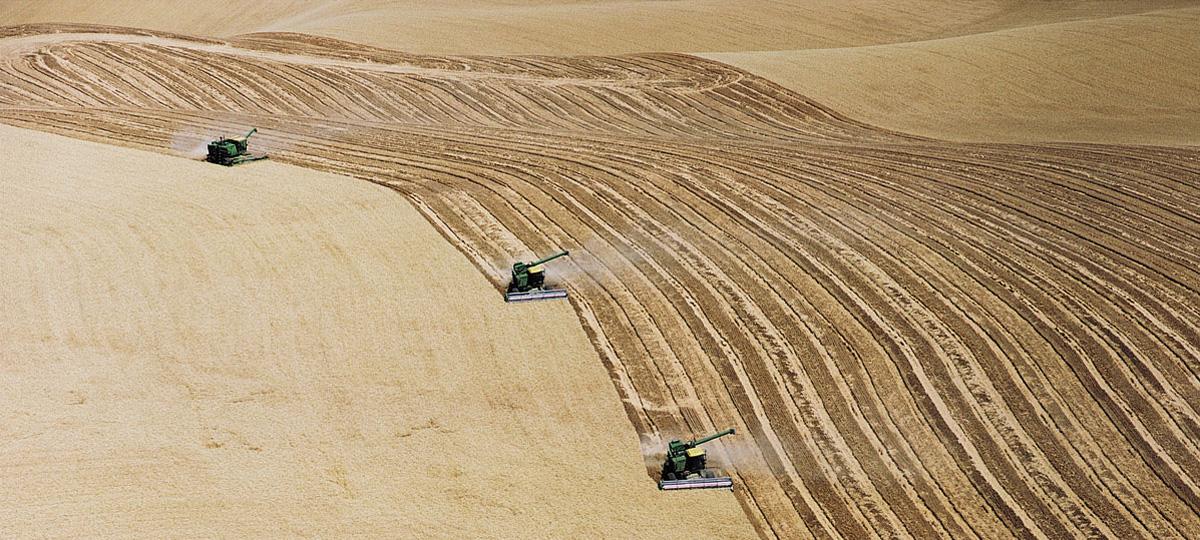Last week we introduced the concept of agroecology, an approach to farming that strengthens local food systems and cultivates resilient communities through ecological farming practices that improve the health of soil, water, air, and seed, while increasing biodiversity and mitigating climate change. Agroecology stands in stark contrast to large-scale industrial agriculture.

Industrial agriculture refers to the growing of plants and raising of animals at large scales for the purpose of maximizing food production and profit. To achieve these goals, farms rely on mechanization and synthetic chemical inputs to boost productivity. Mechanization and synthetic inputs make it possible for one farm to harvest hundreds of acres of crops or raise thousands of animals, reaping the benefits of economies of scale. Because of their large size, these industrial farms typically supply national and global commercial brands that market highly processed packaged foods, rather than providing fresh food products locally. While industrial agriculture does produce incredible volumes of calories and generates staggering profits for agribusiness corporations, it comes with many serious consequences for animal, human, and planetary well-being.1
This week we encourage you to take a closer look at the impacts the current industrial food system is having on communities, the planet, and our health. We point you to two excellent resources, one to watch, one to read.
Dig Deeper…
- The World Needs LESS Food — Spend 15 eye-opening minutes with Canadian small-scale organic farmer Brent Preston in this TEDx talk from 2017. Brent reflects on his own experiences as a small-scale organic vegetable farmer surrounded by large industrial farms and what he has learned about how we feed the world.
- Ten Things You Should Know about Industrial Farming from the UN Environment Programme.



